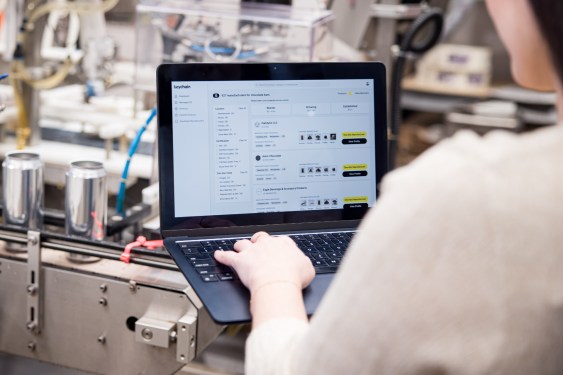Keychain, a U.S. startup, has raised $30 million in fresh funding. The company helps consumer brands find manufacturing partners. This new capital will be used to scale its India-based development team to drive growth in North America.
While headquartered in New York, Keychain operates as a distributed company with its core engineering and product development centered in India. The startup plans to grow its engineering, product design, and analytics teams in Gurugram from 35 to 70 employees in the coming months, and to around 100 within a year. This India-based team already represents half of Keychain’s 70-person global headcount, with about 20 employees in New York and the remainder in Austin handling partnerships, go-to-market, and sales.
This strategy is deliberate. Despite only serving Western markets, Keychain built its primary development operations in Gurugram, which is India’s second-largest tech hub after Bengaluru, to develop its consumer packaged goods platform for clients in North America. The software platform already helps eight of the top 10 retailers, including 7-Eleven and Whole Foods, and seven of the top CPG brands, such as General Mills, connect with suitable manufacturers.
The decision to base operations in India was driven by the talent, depth, availability, and the speed with which you can access that talent. Oisin Hanrahan, co-founder and CEO of Keychain, explained that their experience at a previous startup showed the challenge of building a sustainable engineering team in the U.S. He and his co-founder, Umang Dua, who is from New Delhi, structured Keychain’s teams across India and the U.S., ultimately choosing India as the company’s engineering hub because it provides a deep talent pool with AI exposure and commercial mindedness.
This model is not unique. Several U.S. startups, especially those developing SaaS solutions, base their engineering and product teams in Indian cities. Keychain resembles other international companies like the UK’s Deliveroo and Southeast Asia’s Gojek and Grab, which all tap into India’s tech talent for product development without having a market presence in the country. India’s position as a global technology hub makes it a compelling destination for product development. The time zone also allows teams to work beyond U.S. hours, enabling near-continuous development cycles.
Keychain plans to use its India team to improve its current platform and build new AI-powered software called KeychainOS. This software will help manufacturers manage their product cycles more efficiently. The first module, already available, uses AI to help manufacturers comply with food safety requirements by converting quantitative data into qualitative reports for auditors. The other three modules will focus on purchasing and procurement, inventory, and production planning.
This OS offering will compete with traditional ERP systems like Oracle, QAD, and Plex. In addition to KeychainOS for manufacturers, Keychain has embedded AI into its search and discovery layer to help retailers quickly find relevant third-party manufacturers.
Keychain already helps brands and retailers find manufacturers in food, beverage, supplements, health, and beauty categories and plans to expand to pet and household products later this year. The startup currently serves businesses in the U.S. and Canada and aims to enter Europe later this year.
The software is free for brands and retailers, but manufacturers pay to access the platform and get discovered. KeychainOS provides them with another reason to engage. The startup already has over 30,000 manufacturers on its platform, with hundreds paying to use it. These customers pay anywhere from $10,000 to over $100,000, and the startup earns around $20,000 per manufacturer annually on average.
Keychain’s Series B round was led by Wellington Management and existing investor BoxGroup. With this funding, the startup has raised $68 million in total. The company had a post-money valuation of $260 million in its previous round. The current valuation was not disclosed but was described as a good step up.

